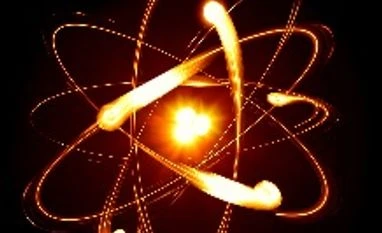The head of the UN nuclear test ban treaty organisation says arch-enemies Iran and Israel are "the closest" of the eight holdout nations to ratifying the treaty and assuring the world they will never conduct a nuclear test explosion.
Lassina Zerbo said this week that having Iran and Israel ratify together would "certainly" lead to Egypt's ratification, and pave the way for a nuclear test-free zone in the West Asia.
The Comprehensive Nuclear Test Ban Treaty, known as the CTBT, has 196 member states of which 183 have signed the treaty and 164 have ratified it.
Zerbo, speaking during a week-long conference marking the 20th anniversary of the treaty being opened for signing, said he doesn't expect immediate results on ratification, but is hoping to visit both Iran and Israel and talk to their leaders because "I think they're the ones who can unlock what is stopping the CTBT from moving."
In a briefing and an interview, he said that implementation of last summer's deal to rein in Iran's nuclear program and confirmation from Israeli and international scientists that Tehran can't produce nuclear weapons would mean "the biggest threat for Israel is gone and over."
Zerbo said the next step should then be to ratify the CTBT, which both Iran and Israel signed in 1996. He called this "a low-hanging fruit," toward the goal of nuclear nonproliferation and disarmament.
"Israel and Iran can make a huge difference for this treaty, and they have nothing to lose ... Absolutely nothing," Zerbo said. "Both of them can take leadership and show carte blanche to the world to say we have together decided to ratify the CTBT."
He said ratification by Iran and Israel would help defuse tensions between the countries, build trust, and provide momentum first for Egypt to ratify the CTBT and then to start negotiations for a nuclear test-free zone in the West Asia.
Zerbo said a nuclear test-free zone is an achievable step toward the much more difficult goal of establishing a nuclear-weapons-free-zone in the West Asia.
"You can't jump and get a weapon-free zone in the West Asia if the CTBT isn't ratified," he said. Arab nations have been calling for a nuclear-free zone since the mid-1990s but efforts to hold a conference to discuss the possibility have failed. One key issue has been differences with Israel, widely believed to have an arsenal of hundreds of nuclear weapons but has avoided confirming or denying their existence.
Lassina Zerbo said this week that having Iran and Israel ratify together would "certainly" lead to Egypt's ratification, and pave the way for a nuclear test-free zone in the West Asia.
The Comprehensive Nuclear Test Ban Treaty, known as the CTBT, has 196 member states of which 183 have signed the treaty and 164 have ratified it.
More From This Section
But, the treaty has not entered into force because it still needs ratification by eight countries that had nuclear power reactors or research reactors when the UN General Assembly adopted the treaty in 1996: the United States, China, Iran, Israel, Egypt, India, Pakistan and North Korea.
Zerbo, speaking during a week-long conference marking the 20th anniversary of the treaty being opened for signing, said he doesn't expect immediate results on ratification, but is hoping to visit both Iran and Israel and talk to their leaders because "I think they're the ones who can unlock what is stopping the CTBT from moving."
In a briefing and an interview, he said that implementation of last summer's deal to rein in Iran's nuclear program and confirmation from Israeli and international scientists that Tehran can't produce nuclear weapons would mean "the biggest threat for Israel is gone and over."
Zerbo said the next step should then be to ratify the CTBT, which both Iran and Israel signed in 1996. He called this "a low-hanging fruit," toward the goal of nuclear nonproliferation and disarmament.
"Israel and Iran can make a huge difference for this treaty, and they have nothing to lose ... Absolutely nothing," Zerbo said. "Both of them can take leadership and show carte blanche to the world to say we have together decided to ratify the CTBT."
He said ratification by Iran and Israel would help defuse tensions between the countries, build trust, and provide momentum first for Egypt to ratify the CTBT and then to start negotiations for a nuclear test-free zone in the West Asia.
Zerbo said a nuclear test-free zone is an achievable step toward the much more difficult goal of establishing a nuclear-weapons-free-zone in the West Asia.
"You can't jump and get a weapon-free zone in the West Asia if the CTBT isn't ratified," he said. Arab nations have been calling for a nuclear-free zone since the mid-1990s but efforts to hold a conference to discuss the possibility have failed. One key issue has been differences with Israel, widely believed to have an arsenal of hundreds of nuclear weapons but has avoided confirming or denying their existence.
)